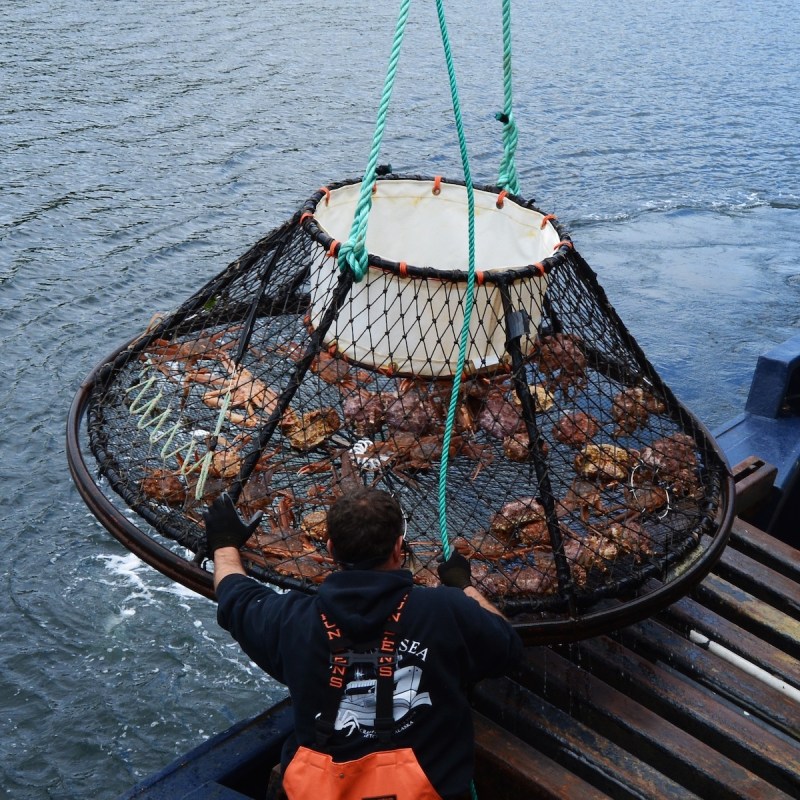
Alaska officials have canceled snow crab fishing in the Bering Sea for the first time while also barring the catching of king crabs in Bristol Bay for the second consecutive year.
Severely diminished populations of crabs, due in large part to climate change, are the reason behind the decision made by the Alaska Department of Fish and Game.
The decision will have devastating impacts on those who make their living catching crabs and could lead to drastic price increases on any crab that is available to consumers.
Snow crabs were at record numbers late last decade, but more than 90 percent of the population has simply disappeared, according to Miranda Westphal, a biologist with Fish and Game.
She noted that Climate Central, an independent group of scientists, Alaskan waters are among those warming faster than anywhere in the world. That may be killing the crabs.
She noted snow crabs are an arctic species, and that when the water warms, their metabolism increases, and the need for more food increases.
“They probably starved to death,” Westphal told the New York Times.
Westphal noted disease could have also played a part, but with the crabs already gone, that question is difficult, if not impossible to answer.
The department made no official statement on the closure, simply noting in an advisory that the stock in the water was below the threshold for opening a fishery.
“Therefore, Bering Sea snow crab will remain closed for the 2022/23 season,” the Alaska Department of Fish and Game wrote.
The Crabbing Industry’s Importance
The crabbing industry is vital to certain coastal towns on the Alaskan waters. The decision and the lack of crabs make life uncertain in these communities. “These are truly unprecedented and troubling times for Alaska’s iconic crab fisheries and for the hard-working fishermen and communities that depend on them,” Jamie Goes, executive director of Alaska Bering Sea Crabbers said in a statement posted on the organization’s Facebook page. “Second and third-generation crab-fishing families will go out of business due to the lack of meaningful protections by decision-makers to help crab stocks recover.”
The lack of crabs will likely push prices much higher for crab that is available from other locations as the balance between supply and demand changes.
The Environmental Protection Agency said in a recent report that rising temperatures were likely the cause for snow crabs and other species to head further north and away from the Alaska coast.
“In the Bering Sea, Alaska pollock, snow crab, and Pacific halibut have generally shifted away from the coast since the early 1980s,” the EPA wrote, according to the Washington Post. “They have also moved northward by an average of 19 miles.”
